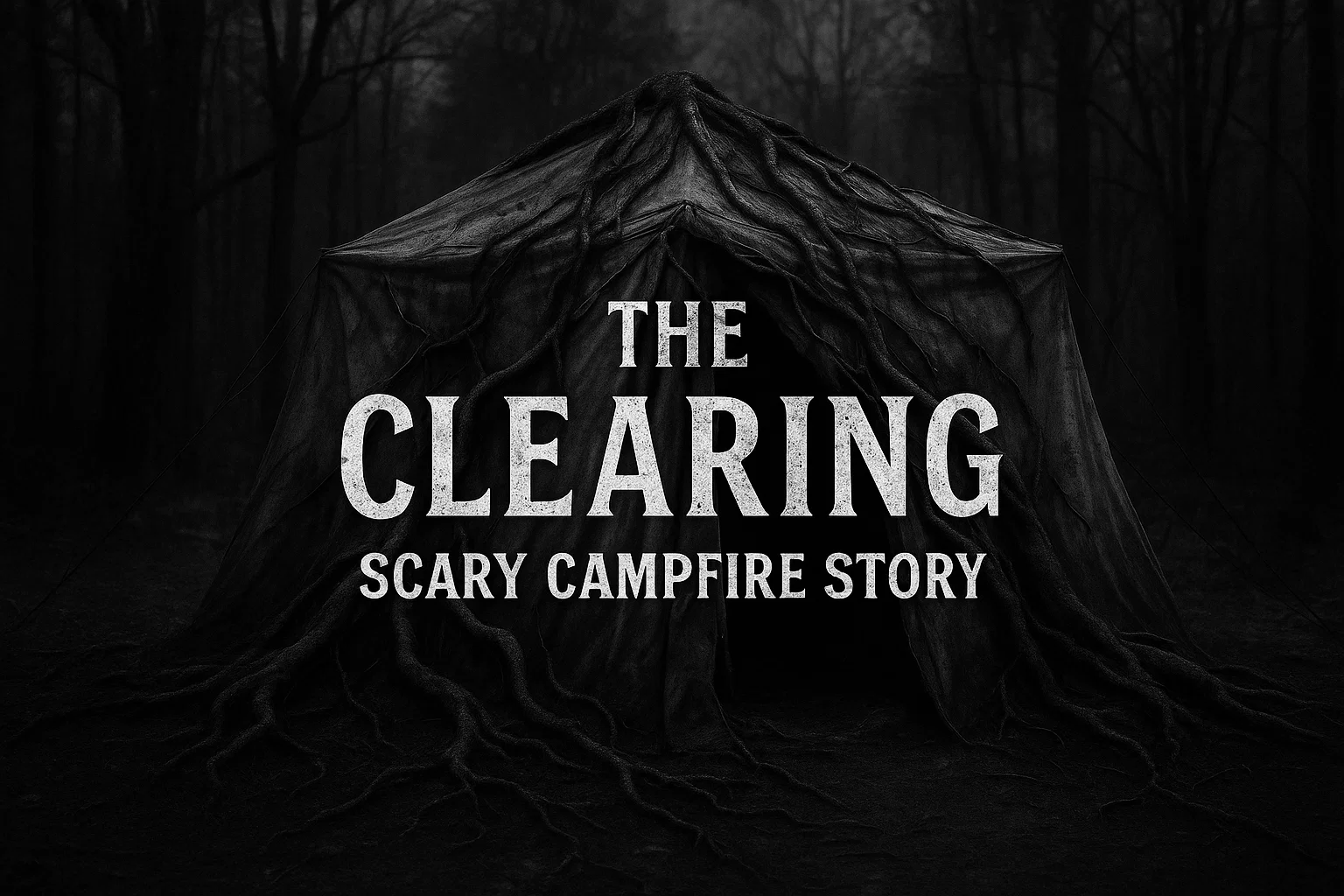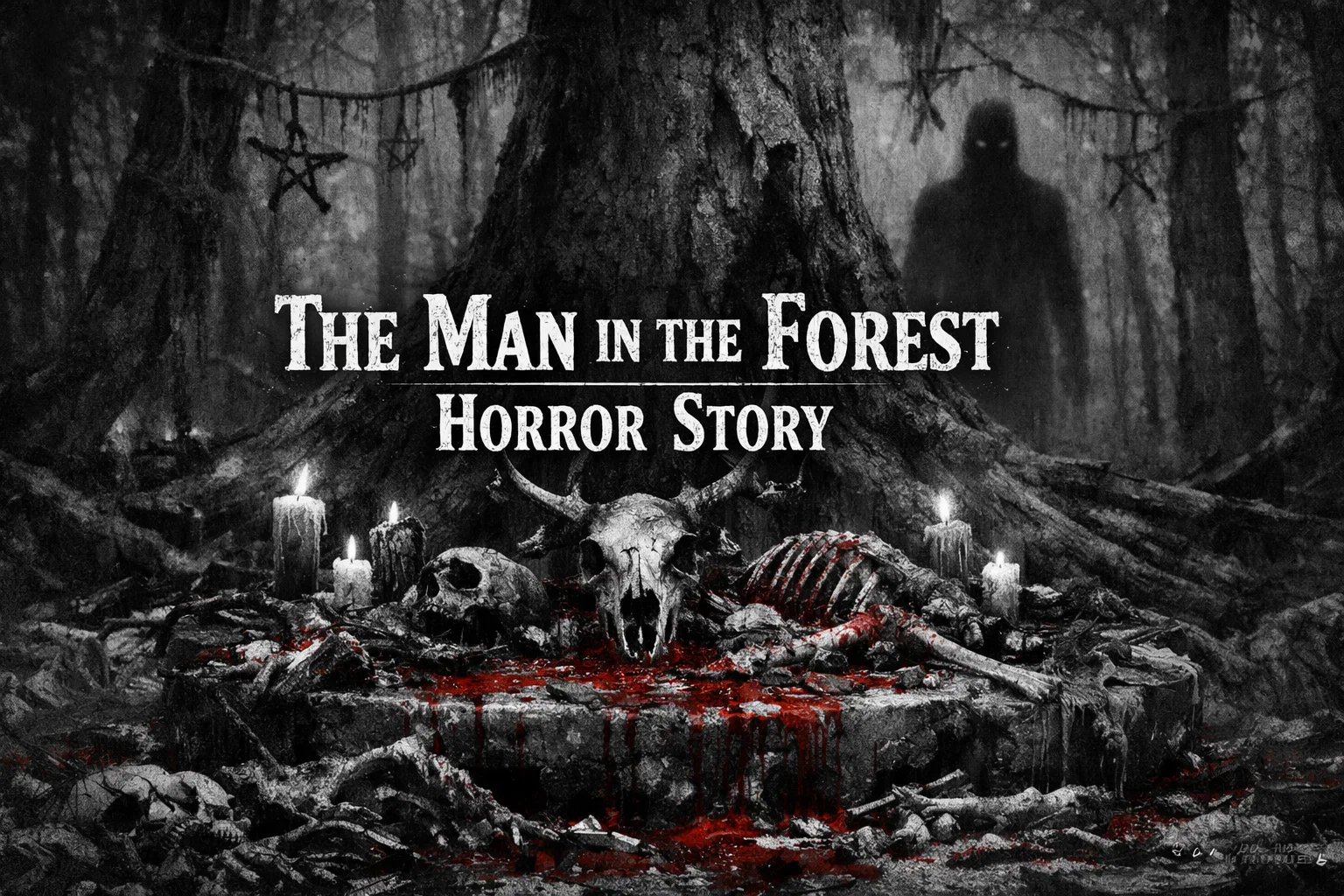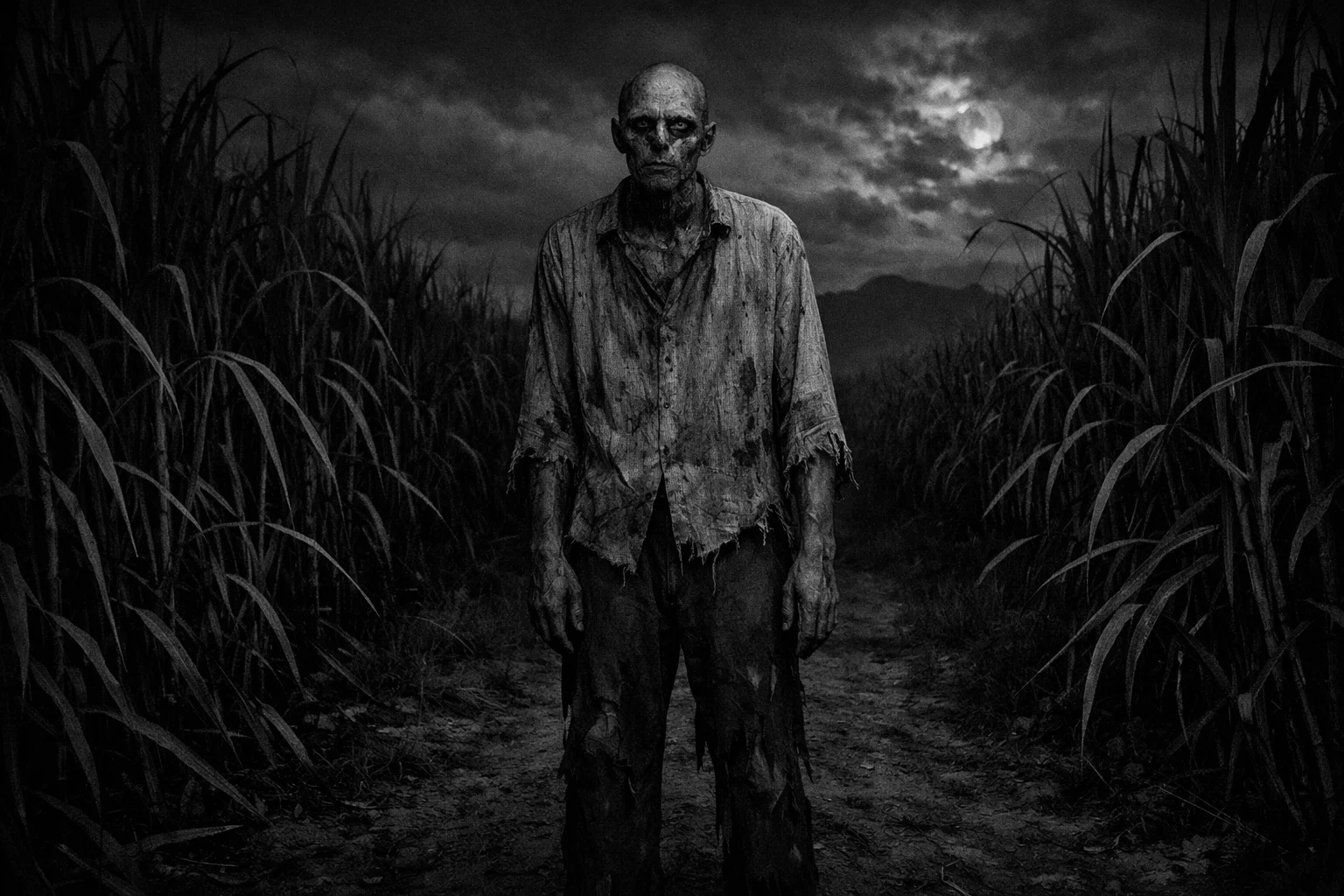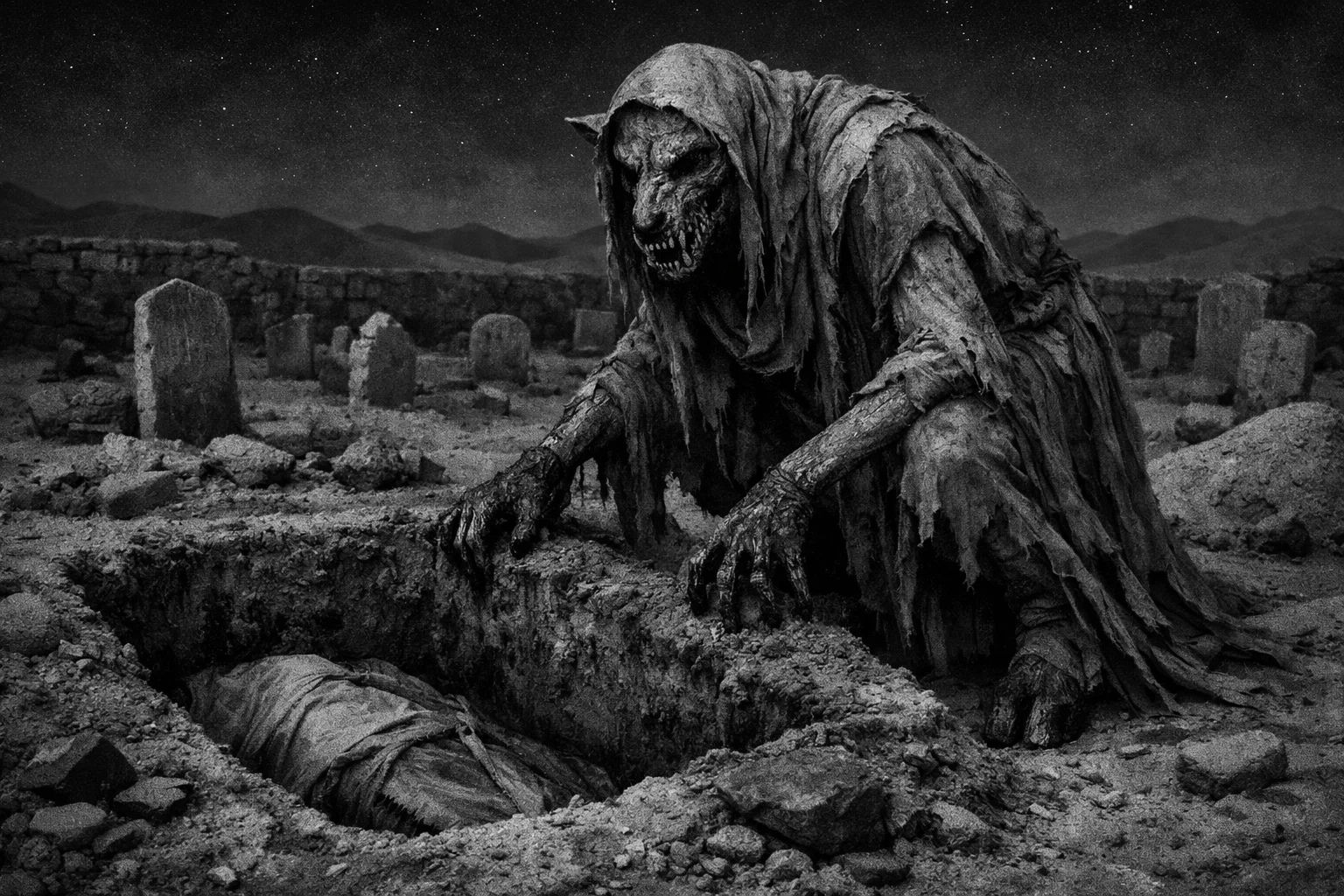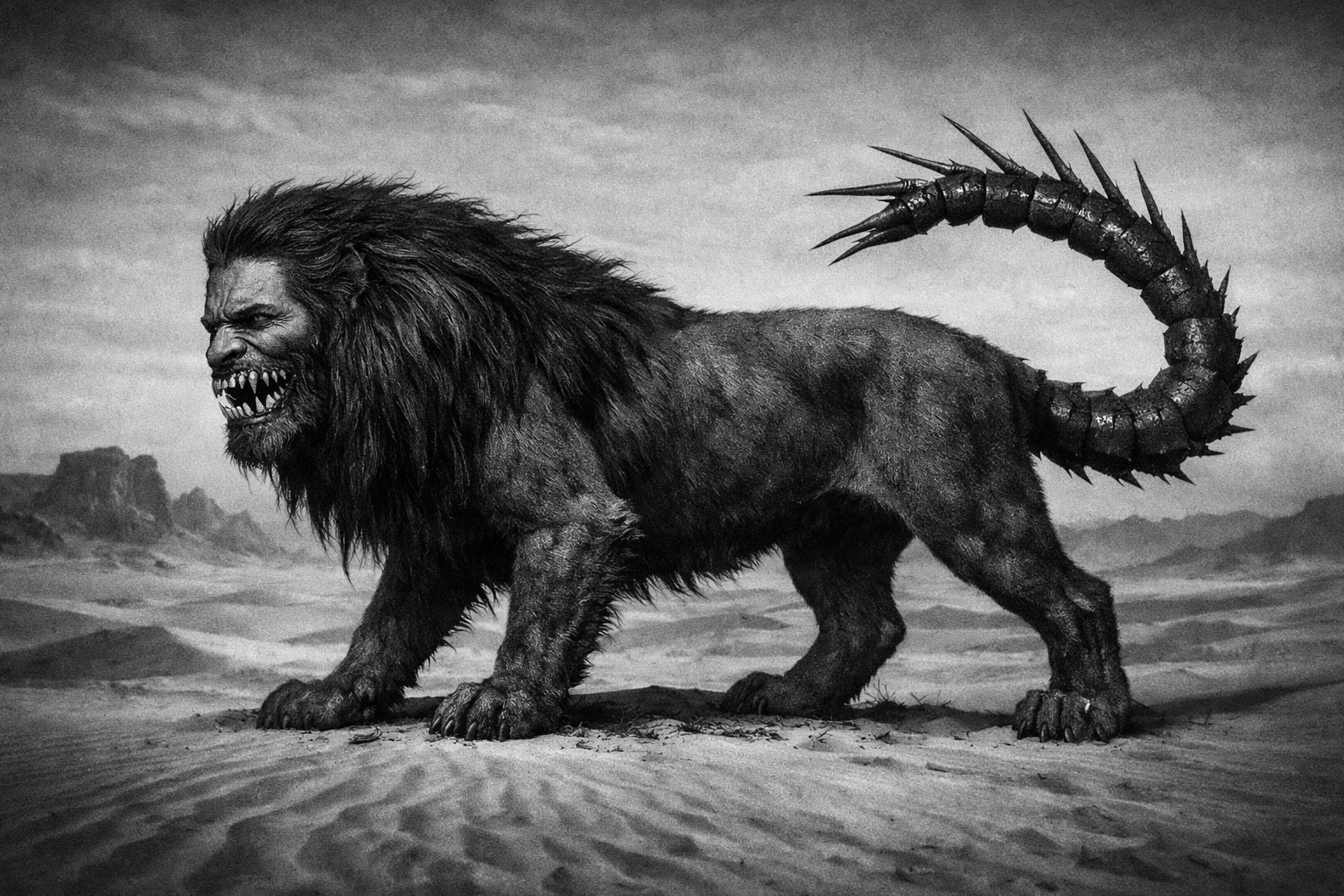In “The Clearing,” a seasoned hiker ventures into a remote state forest for a weekend of solitude, seeking the perfect campsite. They stumble upon an eerily flawless clearing—a pristine circle of vibrant grass ringed by towering trees—that feels like a gift from the wilderness. But as night falls, strange sensations and unsettling noises unravel the idyllic scene, hinting at a sinister presence lurking beneath the surface.
I’m holed up in a dingy motel room, the kind with peeling wallpaper and a flickering neon sign outside the window that buzzes like a trapped fly.
I’m writing this on a notepad I bought at a gas station, my hands still shaking, to get it out of my head, to warn anyone who might listen. I had to abandon my tent, my gear, everything. I barely made it out.
There’s something you should know about me. I’m no novice in the wilderness. I’ve been hiking for years. I crave the solitude, the rawness of it.
Last weekend, I had a rare three-day break, and I chose a remote trail in a state forest hours from home, a place so far off the grid that it barely had a name on the map. The plan was simple: hike five or six miles in, camp overnight, maybe two, then hike out. Just me, the forest, and the quiet.
The hike was everything I needed. Late autumn had painted the forest in fiery reds and golds. The sky was a clear, endless blue, and the sun slanted through the trees, casting golden beams that danced on the forest floor.
My boots crunched through a carpet of leaves, the only sound besides the distant chirp of sparrows and the whisper of wind through branches. This was why I hiked—to escape the clamor of the world, to feel like I was part of something older, bigger, untouched.
I hiked for hours, following a faint trail that twisted through dense oaks and towering pines.
As the sun dipped lower, I began searching for a suitable campsite: flat ground, off the trail, and near a water source. I’d passed a trickling creek a mile back, so I knew I was close to a good spot. Then I found it.
It wasn’t just good—it was flawless.
Pushing through a thick curtain of ferns, I stumbled into a clearing that felt like it belonged in a fairy tale. It was a perfect circle, perhaps forty feet across, carpeted with soft, vibrant green grass that looked as if it had been mowed that morning.
Tall oaks and pines formed a seamless ring around it, their branches interlocking overhead like a cathedral dome, framing a perfect circle of sky. It was like the forest had gifted me a private sanctuary, a haven from the wild.
I dropped my pack with a relieved exhale, the weight sliding off my shoulders. I set up my tent in minutes. I wandered just outside the clearing to gather fallen branches, careful not to disturb the pristine circle. I built a small fire pit in the center.
By the time the fire was crackling, the evening chill was creeping in, and I sat on a log, warming my hands as the sky turned a bruised orange and purple.
I cooked a packet of dehydrated chili over the flames, the spicy aroma mixing with the smoky tang of burning wood. As I ate, I watched the fire dance, its light flickering across the grass, making the clearing glow like a stage. This, I thought, is perfection. This is why I do it.
After scrubbing my cookware with a handful of dirt and a splash of water from my canteen, I doused the fire completely, the hiss of steam rising into the still air. I crawled into my tent, zipped the flap, and settled into my sleeping bag, the soft grass beneath cushioning me like a mattress.
I tried to sleep, lulled by the quiet. That’s when the perfection started to unravel.
It began with a sensation beneath me, a faint wriggling under the tent floor, like a swarm of ants marching in formation. I shifted, telling myself it was just bugs, a normal part of camping. I’d dealt with ants, beetles, and even the occasional snake slithering nearby.
I pulled my sleeping bag tighter, focusing on the sounds of the night—crickets, a distant owl, the faint creak of branches.
But the wriggling didn’t stop. It grew stronger, a subtle, creeping movement against my back, like the ground itself was alive. It wasn’t painful, but it was wrong, as if the earth were breathing beneath me.
Then came the noises.
From the trees encircling the clearing: a soft snap of a twig, a rustle of leaves. I thought it was an animal—a deer, maybe a raccoon—but the sounds were too rhythmic. Snap… rustle… snap… They circled the clearing slowly, like someone pacing in the dark. My pulse quickened.
I lay still, ears straining. Then I saw shadows.
My tent’s thin, light nylon caught the moonlight, casting branch shadows on the walls. I told myself it was just the wind. But there was no wind—the air was still.
Yet the shadows moved. Not swaying, but deliberately sliding—long, finger-like shapes stroking the tent’s exterior, tracing the seams like probing hands.
I sat up, breath caught. I grabbed my flashlight, hands trembling, and aimed its bright beam at the tent wall. The shadows vanished. I swept the light inside—nothing but me, my gear, and my racing heart.
I turned off the light. The shadow-fingers returned, caressing the fabric.
Terror gripped me. The wriggling beneath intensified, like thousands of tiny needles tapping the tent floor.
I aimed the flashlight at the floor beside my sleeping bag.
You May Also Like: 10 Scary Campfire Stories That’ll Keep Everyone Awake All Night
The grass had pierced through.
Dozens of thin, blade-like shoots of that soft green grass poked through the nylon, half an inch high, like a sprouted lawn. But worse—they were moving.
Swaying in unison, a hypnotic, swish-swish-swish. They weren’t grass. They were… something else. Cilia. Teeth. Feelers. Searching for me.
I screamed, fumbling for the tent zipper with clumsy fingers. The zipper’s sound was deafening in the otherwise silent clearing. I burst out, stumbling into the clearing, swinging my flashlight wildly.
The clearing was empty. The trees stood still. For a moment, I hoped I was hallucinating.
Then I turned the flashlight on in my tent. The world collapsed.
The branches weren’t from the trees—they rose from the ground.
Dozens of dark, root-like tendrils, like wet earth, erupted from the grass, wrapping my tent, squeezing it like a python. The tent’s dome was deformed, buckling under the pressure. The roots pulsed, like veins, pulling the tent into the yielding earth.
It looked like the ground was swallowing it. Digesting it. I understood.
I didn’t think. I didn’t grab my pack, phone, or wallet—all in the tent, now being consumed. I had only my flashlight and clothes.
I ran.
I sprinted for the gap in the trees to the trail, feet pounding the soft, sucking earth, like it was trying to hold me. I crashed through ferns onto the trail and kept running. The forest was a blur of panic—tree trunks, twisted roots, and black shadows in my flashlight’s jittering beam. Every rustle was the thing chasing me, every shadow its maw. I ran until my lungs burned, my legs wobbled, and I was sobbing.
Finally, I saw my car’s glint through the trees. I burst into the gravel parking lot, fumbling for my spare key. It took three tries to unlock the door.
I threw myself inside, slammed and locked it, and sat, chest heaving, listening to my ragged breaths. I started the engine—a glorious sound of escape—and drove all night, adrenaline pumping, not stopping until sunrise, hundreds of miles away.
I’m safe in a motel now, but not okay. I close my eyes and see the wriggling grass, pulsing roots, my tent sinking into the earth.
The clearing wasn’t a clearing. It was alive. The grass was a lure, the soft lining of a mouth. The tree circle wasn’t a fence—it was the jaw’s rim. I’d camped on its tongue.

